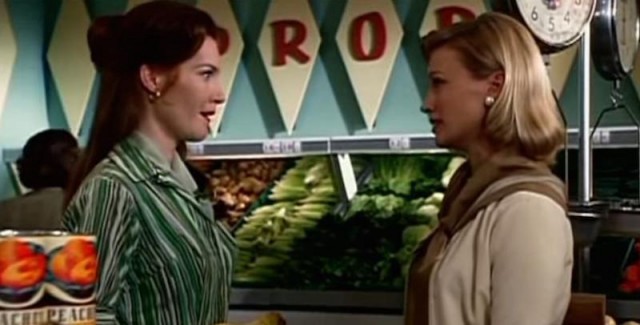Please Stop Yelling At Me About GMOs

There are so many things I’m already thinking about when I’m in a grocery store — price, value, will it make me fatter, will my toddler eat it — that whether a box of crackers has a “Non-GMO” sticker on it or not doesn’t factor into my calculations. It can’t! My brain is at capacity. I can’t even process the pros and cons of organics, for God’s sake.
That means that every time you post another outraged screed on Facebook about Monsanto, I scroll on by. When you Tweet links alongside pictures of wheat fields, I don’t click through. In this life, we all have to make choices. I have chosen not to care about GMOs, or about that massive deathquake that’s going to destroy Seattle. (Sorry, Seattle.) When I’m at the store, the only thing I want is to leave the store as quickly as possible with the maximum number of reasonably priced, tasty items that won’t make me feel terrible minutes after eating them.
Turns out, as priorities go, mine aren’t half-bad. All that hellfire and brimstone people have been preaching about GMOs for years now? Might simply be stuff and nonsense. Or so argues Will Saletan, who stands out as a contrarian even among the contrarians at Slate. Let’s hear him out.
it’s true that the issue is complicated. But the deeper you dig, the more fraud you find in the case against GMOs. It’s full of errors, fallacies, misconceptions, misrepresentations, and lies. The people who tell you that Monsanto is hiding the truth are themselves hiding evidence that their own allegations about GMOs are false. They’re counting on you to feel overwhelmed by the science and to accept, as a gut presumption, their message of distrust. …
Anti-GMO activists decried genetic engineering as imprecise and random. They ignored the far greater randomness of mutation in nature and the far greater imprecision of traditional breeding. Furthermore, after five years of commercial sale and consumption, there was no sign that GE papayas had hurt anyone. But the alarmists continued to fret about unforeseen interactions and doomsday mutations, ignoring research that didn’t bear out these fantasies.
About this point in the article, my eyes are glazed over and I’m thinking I could really go for a papaya salad and I honestly don’t care how the papaya was grown as long as it won’t kill me. Saletan’s so het up about this issue, and his writing style is so full of pomp and self-righteousness; even if he’s correct, he’s not really winning me over. Couldn’t someone a bit more even-handed and moderate tell me what I need to know?
Hang on, I hear a knock at the door. Who’s there? Why, it’s Bill Nye, The Science Guy! Who has converted and is now pro-GMO:
Nye stepped in for his friend and radio host Neil deGrasse Tyson on this week’s edition of StarTalk Radio to discuss his changed views on GMOs. He explained that what changed his mind was a fateful visit to the lab where scientists do the actual gene modification. There, he watched them scan the entire genetic sequence of the crops they wanted to modify.
The process, he saw, was startingly precise — far more so than it had been 20 years ago:
“This is what changed my mind, is being able to do [sequence genes] 10 million times faster than they used to be able to do it … and being able to eliminate the ones not suitable for farming and susceptible to diseases and so on. We’re farmers, and we want them to come out the way we want them.”
Custom agriculture on demand. Sure, sounds like the American way. Only, it’s also the American way to be suspicious of Big Food and corporate conglomerates in general and even science. We’re a bit paranoid, as a nation. Maybe we have a right to be. Maybe Monsanto is blackmailing Bill Nye or simply paid him off. Who knows! Does anyone else agree with him besides angry Will Saletan?
Why yes. Here’s an accessible, informative Sci show video that makes similar points.
Anyone not convinced, still mistrustful of mega-corporations meddling around in our mass-produced food? You might be justified. It might also not matter. Modifications are already in everything and the ship has sailed — you know, the ship where we subsist on produce locally and lovingly grown in our backyards. Also, Portland might disappear under a tsunami in the next couple of years. ¯_(ツ)_/¯
Gather your genetically modified rosebuds while ye may.
Support The Billfold
The Billfold continues to exist thanks to support from our readers. Help us continue to do our work by making a monthly pledge on Patreon or a one-time-only contribution through PayPal.
Comments